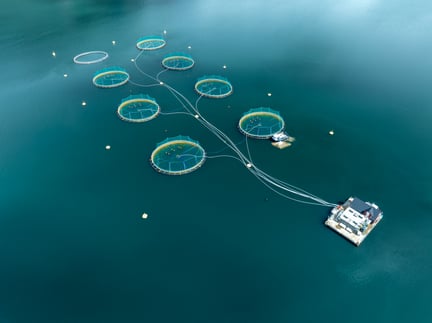A Spanish tuna fishing fleet has begun the process to assess all its fisheries to the MSC Standard for sustainable fishing.
The fleet will assess all fisheries including operations in the three oceans in which it operates (Pacific, Indian and Atlantic oceans) and for the three species it captures (Yellowfin, Skipjack and Big Eye).
The objective of the fleet, grouped under OPAGAC, is to obtain the Marine Stewardship Council (MSC) certification. Independent auditors from LRQA hired by OPAGAC will evaluate its fishing activities according to science-based standards set by the MSC. If the fishery is found to meet the MSC’s requirements, it will achieve MSC certification for a large part of its tropical tuna captures which amount to 380,000 tons per year, 8% of captures worldwide.
To undertake this pioneering project, OPAGAC has hired the services of the accredited conformity assessment body (CAB) Lloyd´s Register which will evaluate the fisheries as per the three principles of the MSC environmental standard. This requires that the seafood catch comes from stocks in good condition, with minimal environmental impact and with exhaustive controls. LRQA's initial assessment of the fishery will be available for public comment towards the end of the summer.
This assessment is the result of the Fishery Improvement Project (FIP) that OPAGAC has developed in collaboration with the WWF since 2016, the objective of which is to achieve MSC certification for the 12 stocks their ships fish. It is worth remembering that at the 2017 international Our Ocean conference the Spanish fleet undertook to obtain MSC certificate for all its captures by 2021.
According to Julio Morón, Managing Director of OPAGAC: “For many years, we fishermen have been clear that a fishery that is not sustainable has no future and, therefore, we want to meet the objective of our FIP and the commitment to sustainable and responsible fishing.”
If, following a full evaluation and stakeholder consultation, the fishery is found to meet the MSC Standard, OPAGAC will be the holder of the certificate, the requirements of which must be complied with by the associated ship operating companies. The tuna fishing organisation shall act, therefore, as a guarantor that its members meet the MSC requirements to obtain and maintain future certification.
The news was announced at this year’s Seafood Expo Global. According to Laura Rodríguez Zugasti, MSC Director for Spain and Portugal: “The main theme of our Seafood Futures Forum, organised by the MSC at Seafood Expo Global, is accelerating the change to end overfishing. OPAGAC, through the important progress in the Fishery Improvement Projects and now with the decision to enter its fisheries in three oceans for assessment, is contributing to accelerating change in the global tuna fishing sector. It is a great satisfaction for the MSC office in Spain that the Spanish tuna fishing fleet assumes leadership on the global action for sustainable fishing.”
Polly Burns, Fisheries Manager at Lloyd´s Register said: "This is the largest tuna fleet in the world to apply for MSC certification on this scale which shows OPAGAC’s commitment to sustainable practice and fisheries management. We’re delighted to be working alongside them to deliver the assessment. As an independent assessment body assessing against the MSC standard. the process will be as rigorous and demanding as ever, so if certified, it will be a huge accomplishment for OPAGAC and one of which they can be very proud.”
LRQA specialist Fisheries and Aquaculture team has a strong track record in delivering MSC assessments and other seafood assurance services, assessing over 100 seafood species globally. The business operates in 40 countries across six continents, working across the supply chain from fisheries to retailers.
To find out more about the services we offer click here.


